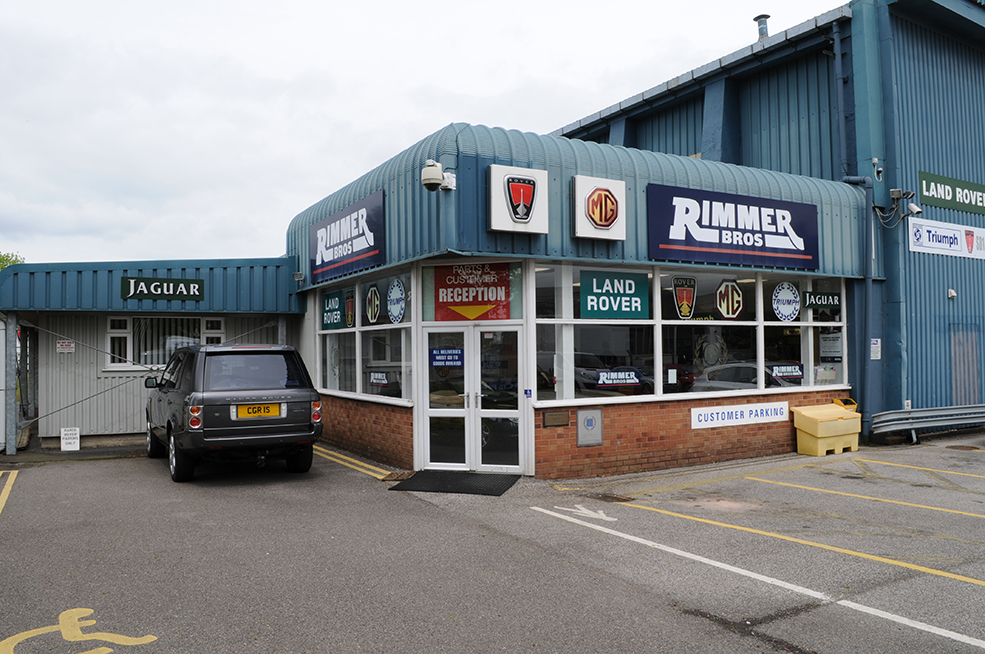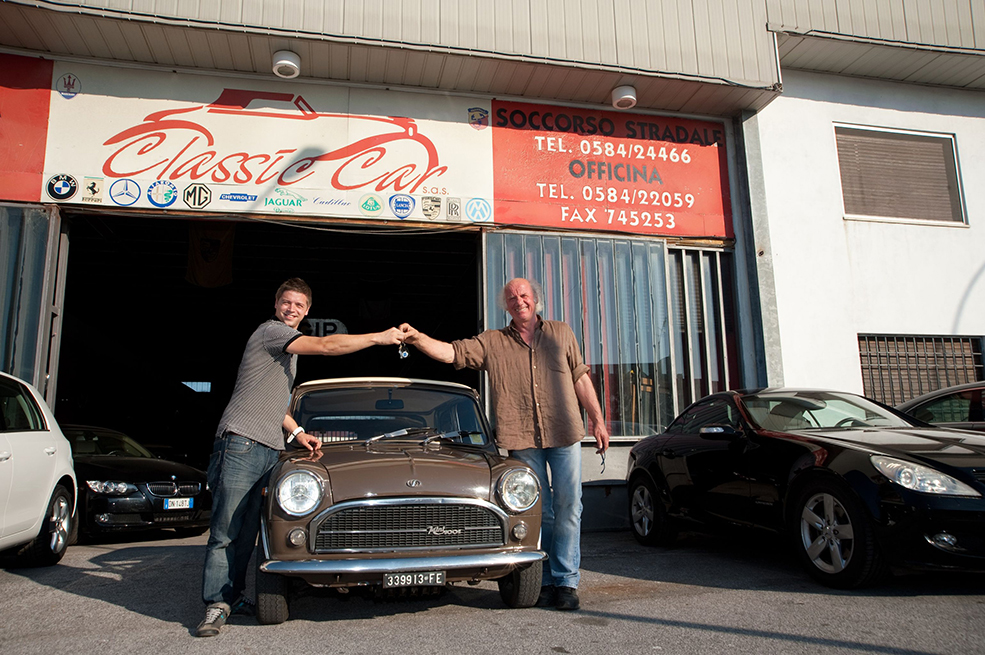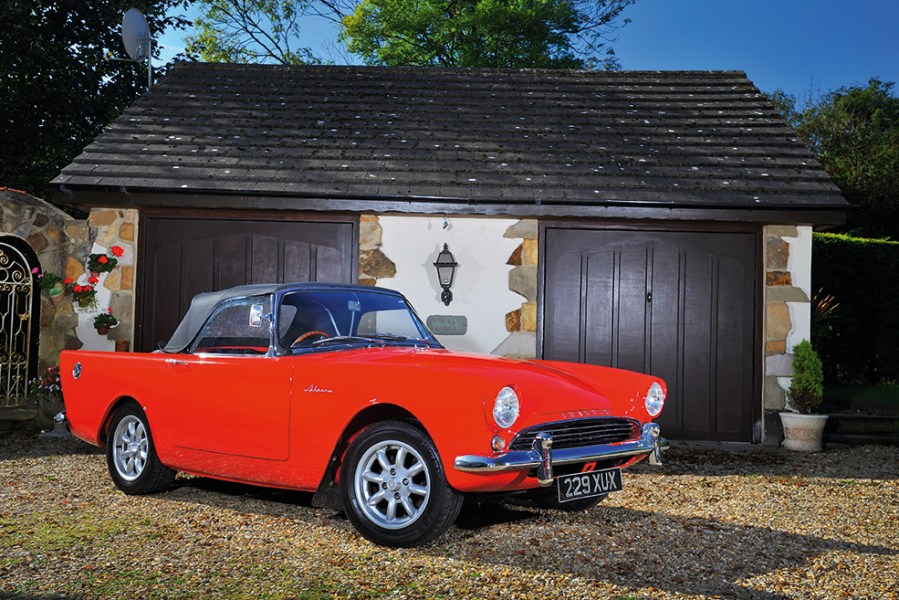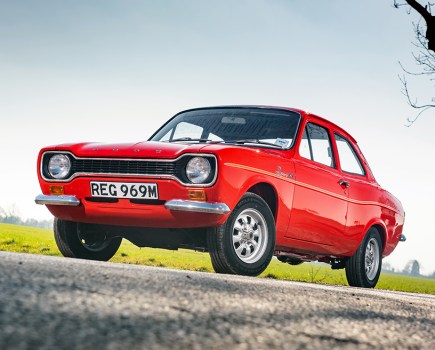On top of Covid-19 uncertainty, the UK’s historic vehicle industry now faces the end of the Brexit transition period. With the sector worth a remarkable £7.2bn per year, we investigate what the implications are for anyone involved in the old car world.
Although the UK left the European Union at the end of January 2020, everything basically stayed the same. However, with the transition period due to end on December 31, a huge government campaign is urging businesses to get ready. For us at CW, it seemed like an opportune moment to see what’s involved for the historic vehicle industry and what it might mean for consumers.
International trade is important to the movement. The 2020 National Historic Vehicle Survey commissioned by the Federation of British Historic Vehicle Clubs (FBHVC) estimated a remarkable £7.2bn per year was spent on anything and everything to do with historic vehicles in 2019, with £0.95bn of that annual figure coming from non-UK residents.
Should a Free Trade Deal (FTA) be struck between the UK and the EU, that should mean continued tariff and quota-free access to each other’s markets. If there’s no such deal, the UK could be forced to trade with the EU on World Trade Organisation (WTO) rules – at least, initially.
In this scenario, the EU would impose tariffs on imported UK goods and vice versa. We would be able to set import tariffs but would have to apply them to every country in the world, so it’s a tricky balance to avoid a flood of cheap imports hurting domestic production. Car parts usually carry a tariff of three or four per cent, but for new cars it’s 10 per cent, hence why the new car industry is so keen for a deal.
Mandatory changes
Irrespective of an FTA, we already know the UK government’s approach to negotiations involves leaving the EU’s Single Market and Customs Union. That’ll mean the introduction of mandatory customs declarations on goods moving between EU countries and Great Britain, similar to the UK’s current treatment of non-EU goods, resulting in extra red tape and costs. For import to the UK, these controls will be staged to help the transition, but the EU may impose full controls on goods going the other way from January 1.
Under the proposed Northern Ireland Protocol, customs declarations on goods moving into Northern Ireland from Great Britain will be required as a solution to avoid a hard border with the Republic of Ireland. Some fear that many ordinary businesses in Great Britain will not be aware of the mandatory paperwork required.
The UK will leave EU VAT regime too, meaning new administrative requirements. For example, the Low Value Consignment Relief – for parcels valued as £15 or less – will be scrapped on parcels arriving from the EU.
Many of our historic vehicle specialists enjoy brisk trade with EU countries, so what do the changes mean for them? According to government advice, dealing with the complications of customs declarations may require extra software or getting someone to act on a business’s behalf such as a courier, freight forwarder or customs agents to manage it all.
For smaller businesses completing customs formalities for the first time, having to read up on everything and make changes may all look very daunting. Indeed, Mark Wynn-Smith, whose firm Smiffy’s Bits makes popular bespoke stainless items for classic Minis, expressed his concern at the extra time and expense needed to get ready.
“I did the webinar with HMRC and my accountants, and it blew me away what was said,” he explained. “I can see the costs involved for small businesses being too much, and the time as well – I only have one pair of hands! The VAT content will be a pain as you need a software package that links to HMRC, another cost of around £60 a month.”

Brexit – no problem!
For many larger classic car parts operations already used to importing and exporting from all over the world however, it’s just a case of extending existing frameworks. Indeed, for Rimmer Bros, ‘Brexit – no problem!’ is the message. “We’ve always shipped internationally, so our systems are set up for dealing with countries that have import duties and taxes, and also thresholds for different duties and taxes,” said Andrew Mundy, Sales and Marketing Manager.
In Rimmers’ case, some of the administrative burden could be lifted, as it will no longer need to deal with the differing VAT rates for EU countries and regular VAT returns to each EU country’s tax authorities. After December it can simply charge without any VAT and duty, and its couriers will charge the appropriate taxes and duties to the customer instead.
As for imports, there’s the option for UK businesses to use the duty deferral scheme, or pay a courier the due costs before or at the time of delivery. Anyone who’s ordered a car part from outside the EU will likely be aware of a courier like Parcelforce managing all the duties and taxes, leaving just a simple bill to pay before delivery.
We can’t pretend there won’t be extra costs and delays for both businesses and the end consumer sourcing parts from the EU to GB and vice versa, but increasing familiarity should help reduce disruption, especially if there’s an FTA. It could also be an opportunity; while it may prove difficult for some business to continue to trade with the 27 EU countries, it may encourage them to look inward and boost UK domestic manufacture. For others, it may instigate procedures that see businesses spread their wings further than the EU and open trade with fast-growing worlwide markets.
Andrew’s advice is that there’s no need to panic. “There’s a noise around something that doesn’t need too much concern; they’ll just be a bit more regulation,” he says. “There will still be cars in the road in France that need parts that will be easy for them to get in the UK. Everyone throughout Europe is going to want to trade.”

What about classic car imports?
What about trading complete cars? Currently, if you’re bringing a second-hand vehicle into the UK from the EU you don’t have to pay VAT, but the UK leaves the EU VAT regime after December 31. Should things align with the rest of the world, that would mean 20 per cent VAT for cars under 30 years old, but only five per cent on collectors’ vehicles under the commodity code 9705.
This includes motor vehicles older than 30 years old, plus motor vehicles used in the course of an historic event and motor racing vehicles that have achieved significant sporting success, irrespective of age. The rules are open to interpretation and even allow for incomplete vehicles, but generally, they must be preserved and maintained in the historically correct condition.
Interestingly, original parts and accessories for motor vehicles are also included, provided they are at least 30 years old (so great for rare new-old-stock finds).
No tariffs would apply for these imports and a no FTA scenario doesn’t make any difference for cars and parts over 30 years old. For younger cars without any special significance in a no FTA scenario, you’d have to pay an import tariff of 10 per cent, plus 20 per cent VAT.






